
This is about the original Reed Richards not the post-1989 Reed.
The original Reed was a true hero, and a man's man. In this scene for
example has no super powers, and no technology, yet defies Annihilus
himself with nothing more than a burning
stick! This is why we call him Mister Fantastic!
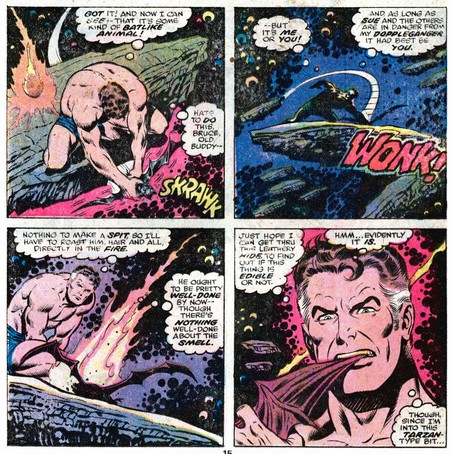
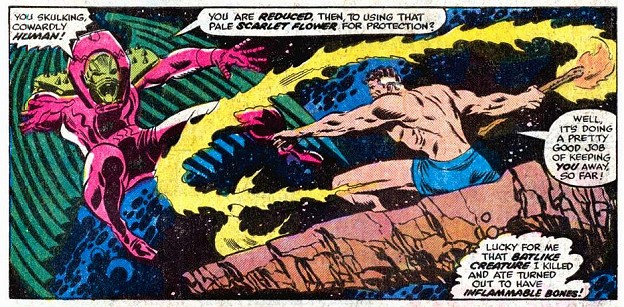
Reed is a natural introvert, but thanks to the draft he was forced
to become a leader of men.
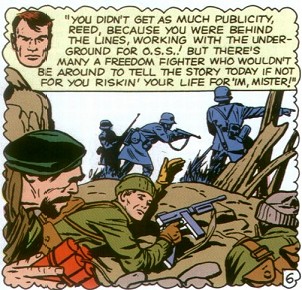
Once Marvel Time made the draft
impossible, it no longer made sense for Reed to have military
experience. The modern Reed lost a vital dimension to his character
and was left as just a geek. This page is about the old Reed, the
hero, and there was nobody braver:

The most inspirational hero of all
Below: perhaps the best way to understand Reed is through those
who know him best. His friends would gladly die for him, and his
enemies - when they realize the nobility if his soul - have
actually done so, more than once. Below: many comic fans would
call Doctor Doom one of the greatest characters ever. Doom was
always in the shadow of one man, his only superior: Reed Richards.

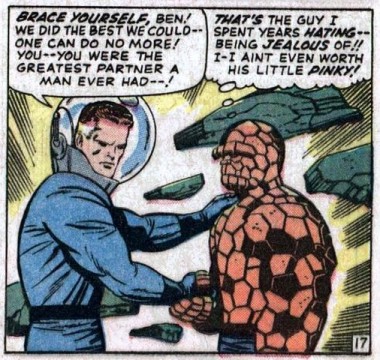
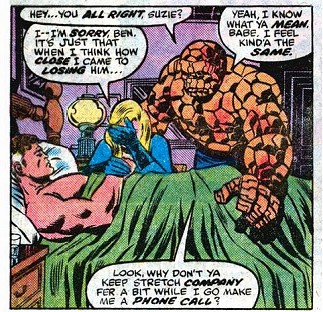
How often has Reed saved the world?
- FF2: the Skrull invasion. This is the big one, the basis of
their fame. The public were not aware of this invasion, but the
authorities were: between FF2 and FF113 the authorities
supported the FF (this support was crucial in defeating the
Impossible Man in FF11).
- FF20: the Molecule Man
- FF21: the Hate Monger. Due to mind control is is uncertain
whether others appreciated this.
- FF24: the Infant Terrible
- FF64: the Sentry
- FF108: the Nega Man
- FF141: Annihilus
- FF186: Nicholas Scratch
- FF200: against Doom. Note that this was a major victory, but
also a temporary one.
- FF212: the Sphinx. This was a huge gamble, as it involved
inviting Galactus to destroy the Earth and then stopping him.
- FF230: from the Ebon Seeker
- FF235: against Ego, the living planet (by getting the team
there, then removing the power pack).
- FF271 (flashback, before they gained their powers) against
Gormuu.
Reed also saved two other worlds: Planet X (FF7) and Sub-atomica
(FF16). That's once per year, as he measures time. The list does not
include battles where...
- ...somebody else did most of the work (e.g. Alicia defeating
Galactus in FF48-50)
- ...he partially caused the problem in the first place (e.g.
the war against Atlantis in FF102-104) - in those case he
usually fixes his problem.
- ...less than a city was saved (e.g. against the Puppet Master
in FF8). These events make him a hero, but are not world
changing.
- ...very few lives (if any) were endangered (e.g. the Mole Man
lowering cities in FF1). The Mole Man is a good example: his
real motives are discussed on
his own page.
- ...he is only protecting his own family (e.g. against Doom in
FF5): super powered beings spend most of their time trying to prove they are greater
than other super powered beings.
- ...the long term danger was only theoretical at the time (e.g.
FF18, against the Super Skrull)
- ...the enemy could have been stopped more easily if another
member of the team was in charge (e.g. FF57, the cosmic powered
Doom, or all appearances of Galactus after the first). Obviously
this last category is highly controversial and is open to
debate.
- ...he could destroy the world" is probably hyperbole (e.g.
FF164, the Crusader: he just needed counseling).
- ... he saved the world, but immediately put it in danger again
(e.g. FF187, where he defeats the Molecule Man but then picks up
his wand)
- ...he merely saved them from massive but temporary
inconvenience (e.g. power outages in FF221). Obviously the
seriousness of each threat, and what constitutes "the world in
danger" is open to debate.
- ...the world was saved by luck (e.g. FF231, from Stygor)
All of Reed's struggles and human weaknesses must be seen in this
context. The world owes him everything. He is the hero's hero.
Reed versus Doom
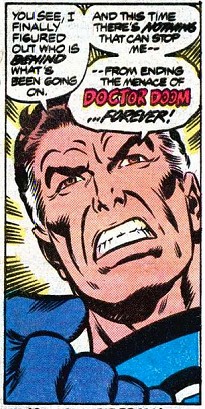
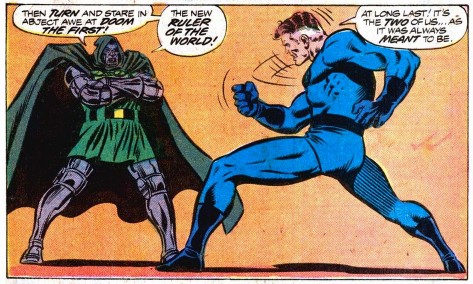
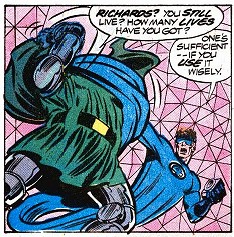
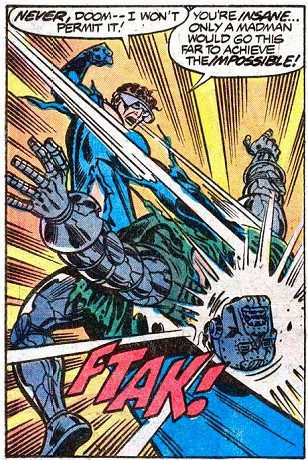
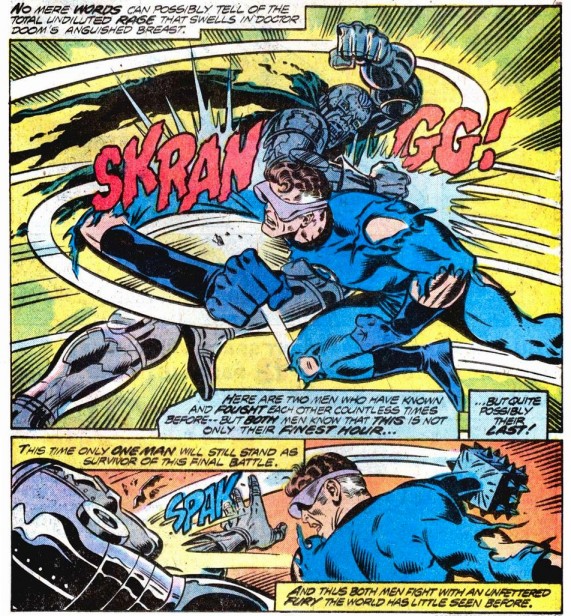
Reed fills the page!
The post 1991 Reed tends to stand around and talk most of the
time. Frankly, he is dull. But the original Reed Richards is
larger than life - he fills the room!
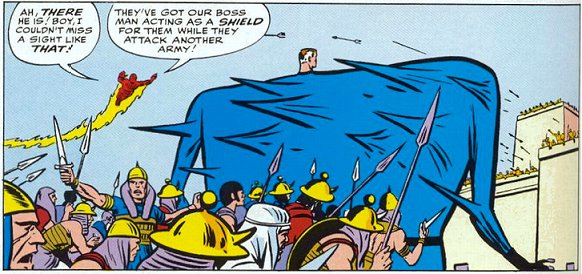
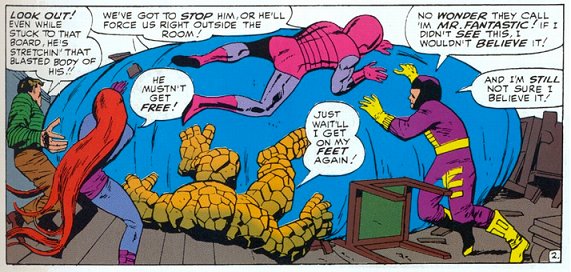
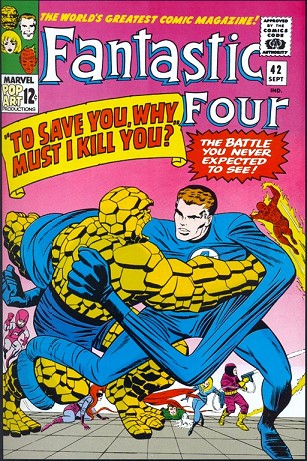
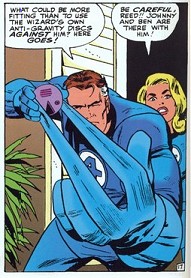
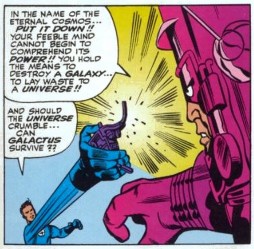
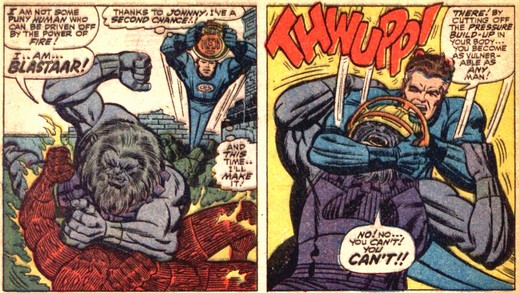
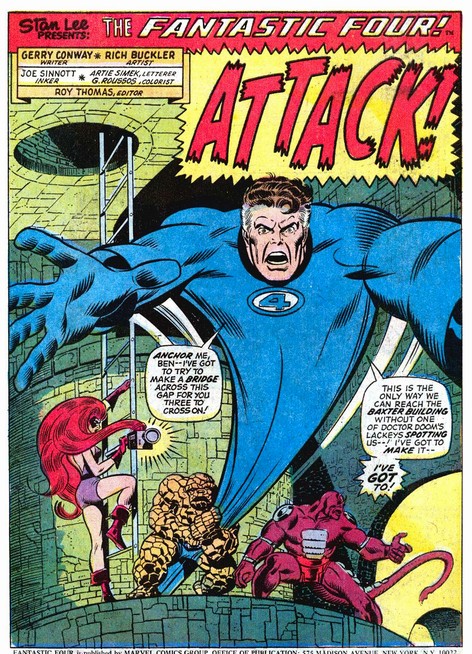
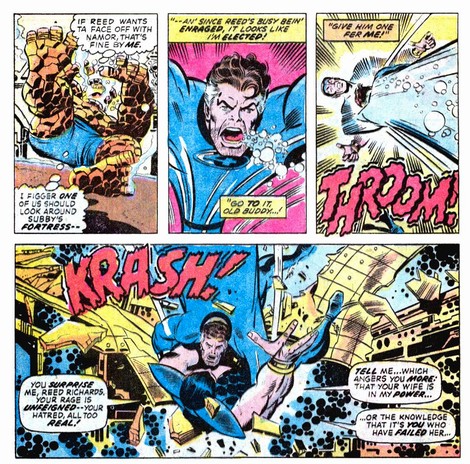
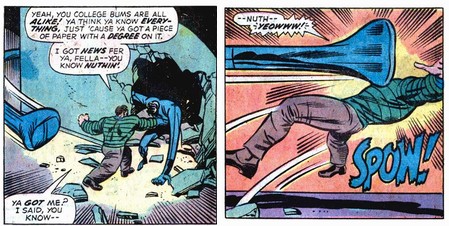
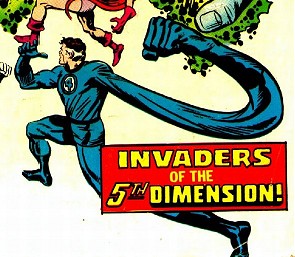
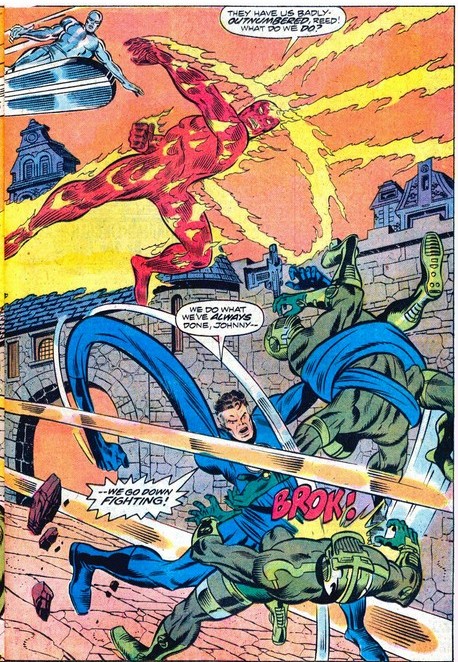
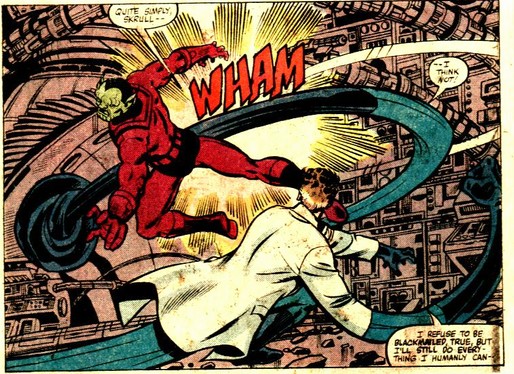
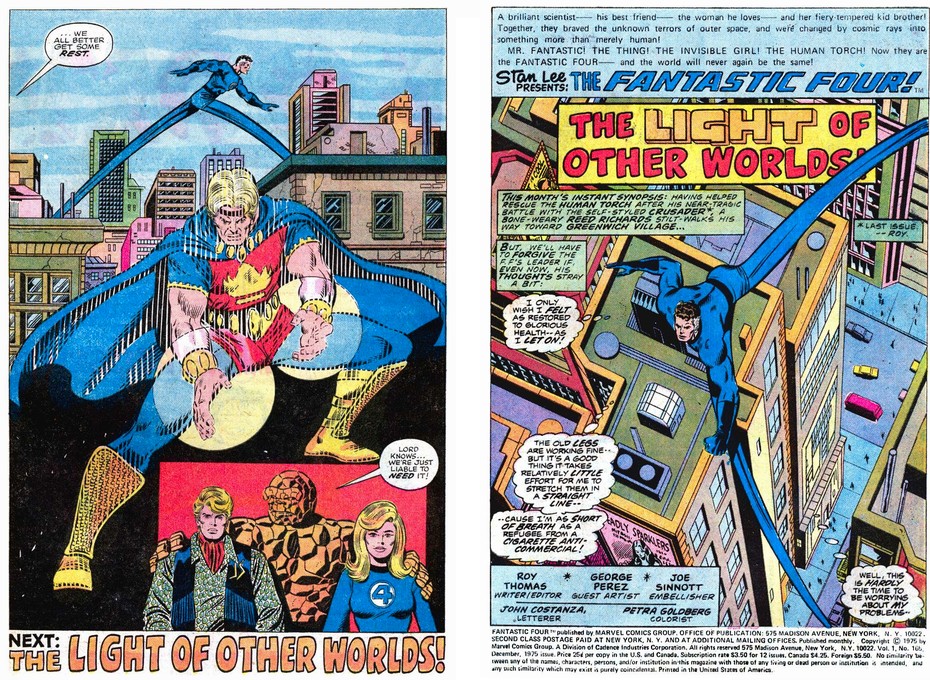
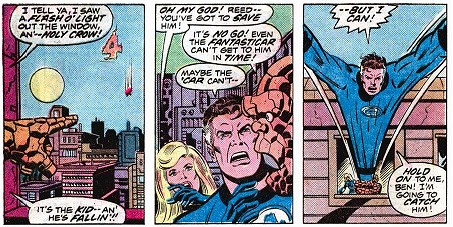
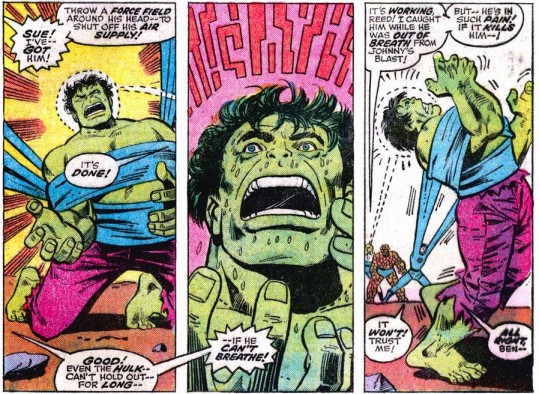
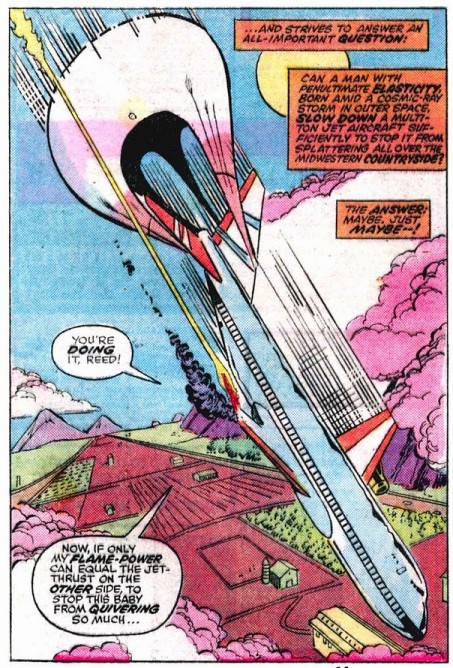
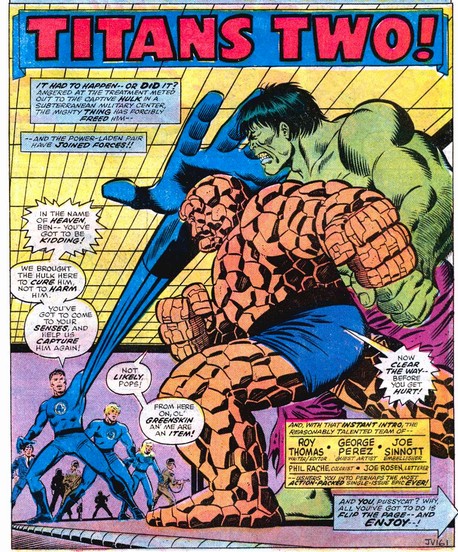
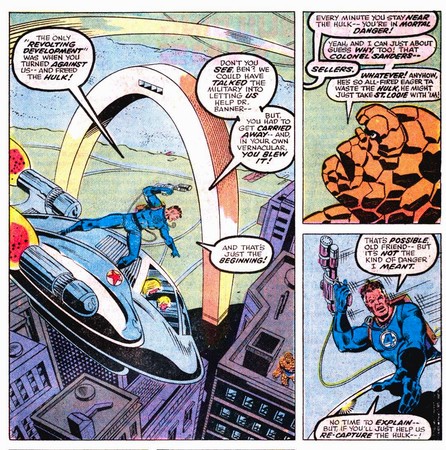
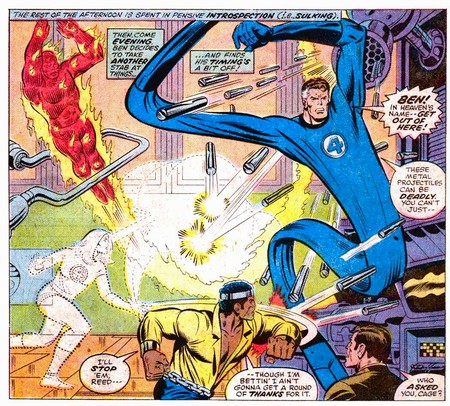
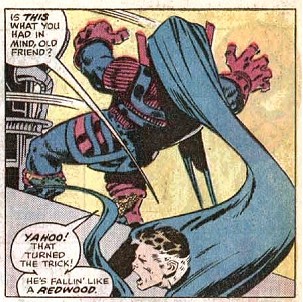
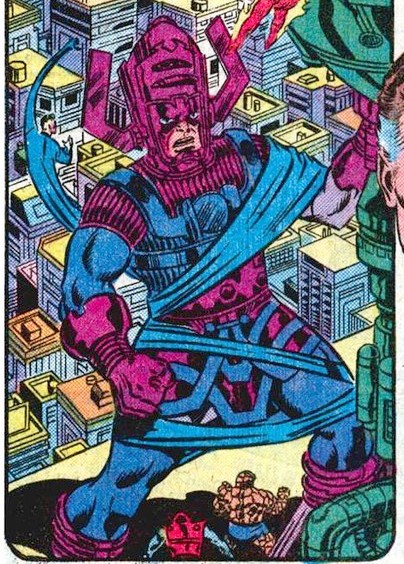
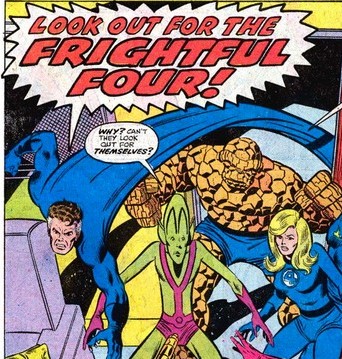
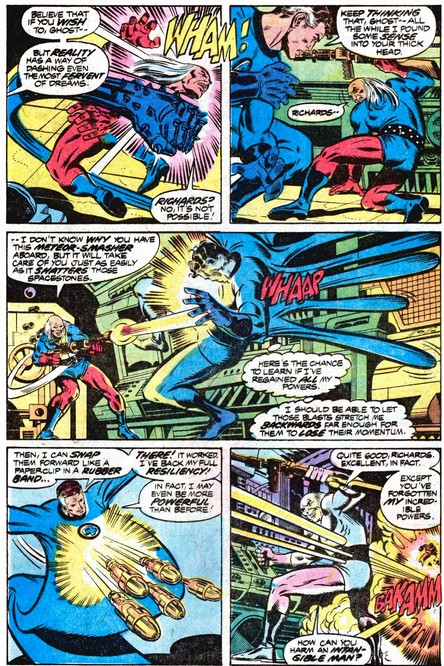
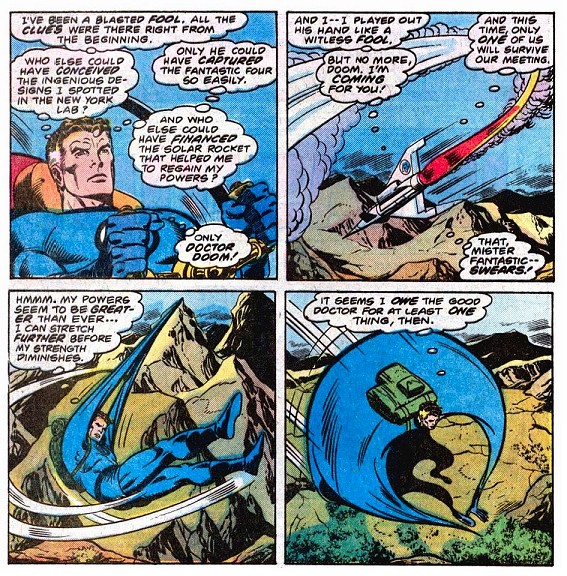
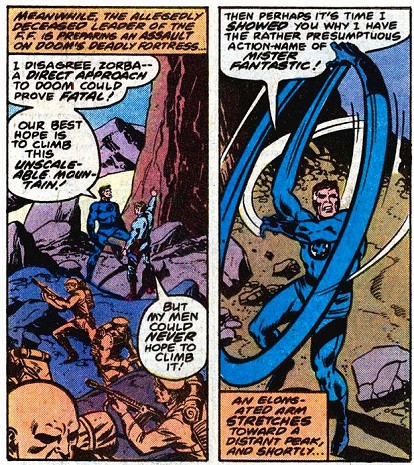
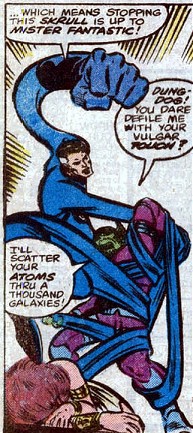
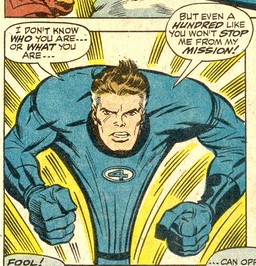
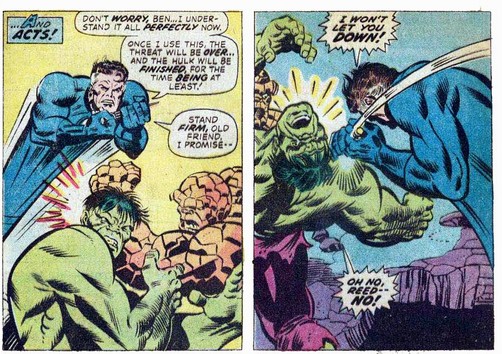
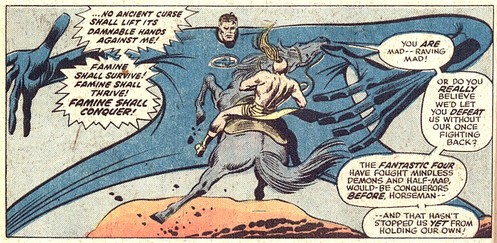
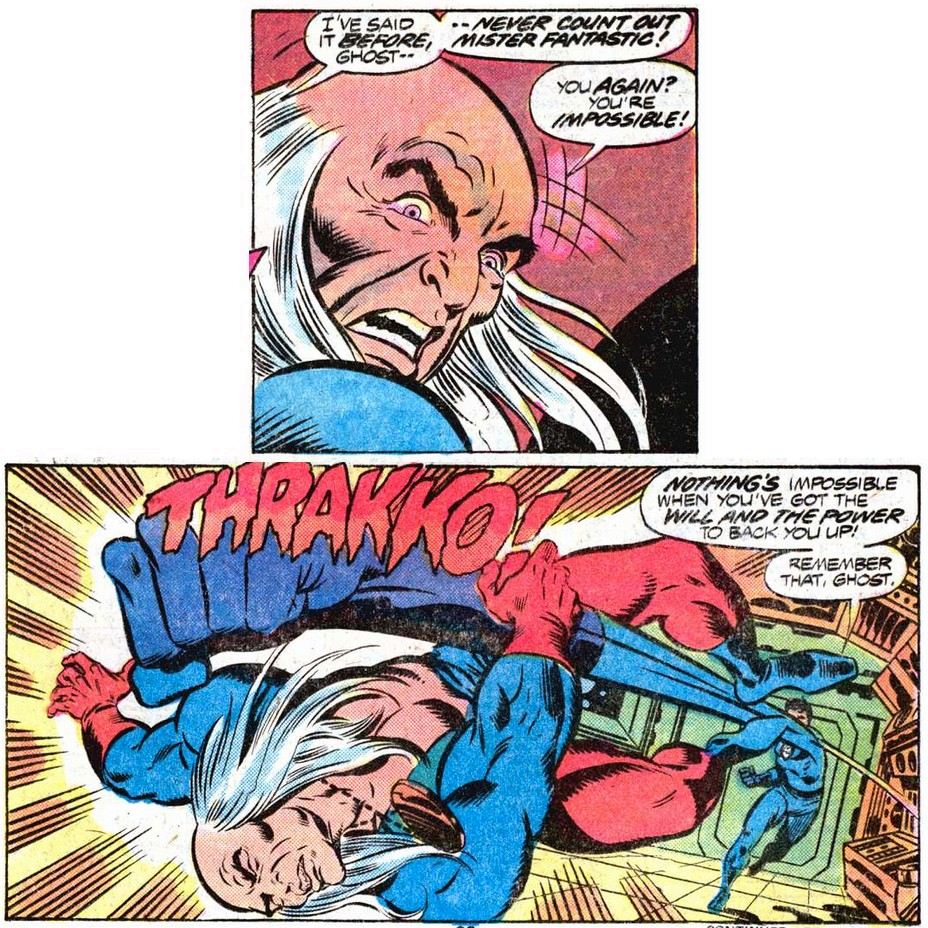
Reed's story
Like a Shakespearian hero, he has one fatal flaw: he finds it hard
to relate to others or see their (different) talents.

The twenty seven year story shows Reed rise to ever greater glory.
But as the stakes continually rise he needs his team mates more and
more.
But he treats them like children. This weakens the team, and finally
they can't take it any more and they leave. Reed's confidence and
health is destroyed.

Being a genius and a proud man he tries to solve his own problems on
his own: he defeats his greatest enemy in hand to hand combat
(FF200), he creates the perfect house for his family (FF265), and
has crazy secret schemes to fix everything (see commentary to FF251
and FF279). But nothing helps, the situation gets worse and worse,
until finally he realizes... perhaps it was his own fault. Then the
healing can finally begin.

Reed represents American confidence. He is sincere and genuinely
cares, but sees himself as separate and apart from others. He thinks
he is the beacon of freedom, the world's policeman. But the learns
that parochialism never solves anything: success or failure comes
from the community, not from one person forcing their will on
another. This reflects the cold war, the period covered by the
Fantastic Four: the Soviet Union could only change from within, and
the only enemy that can defeat America is America, when the nation
forgets that all men are created equal.
Reed's rise, fall and eventual self knowledge can be summarized as a
graph:

The face of confidence
Reed's pliable face reflects his long-term confidence. At the start
he looked like he did before the space flight, but as he gained fame
and glory he took on a heroic look.
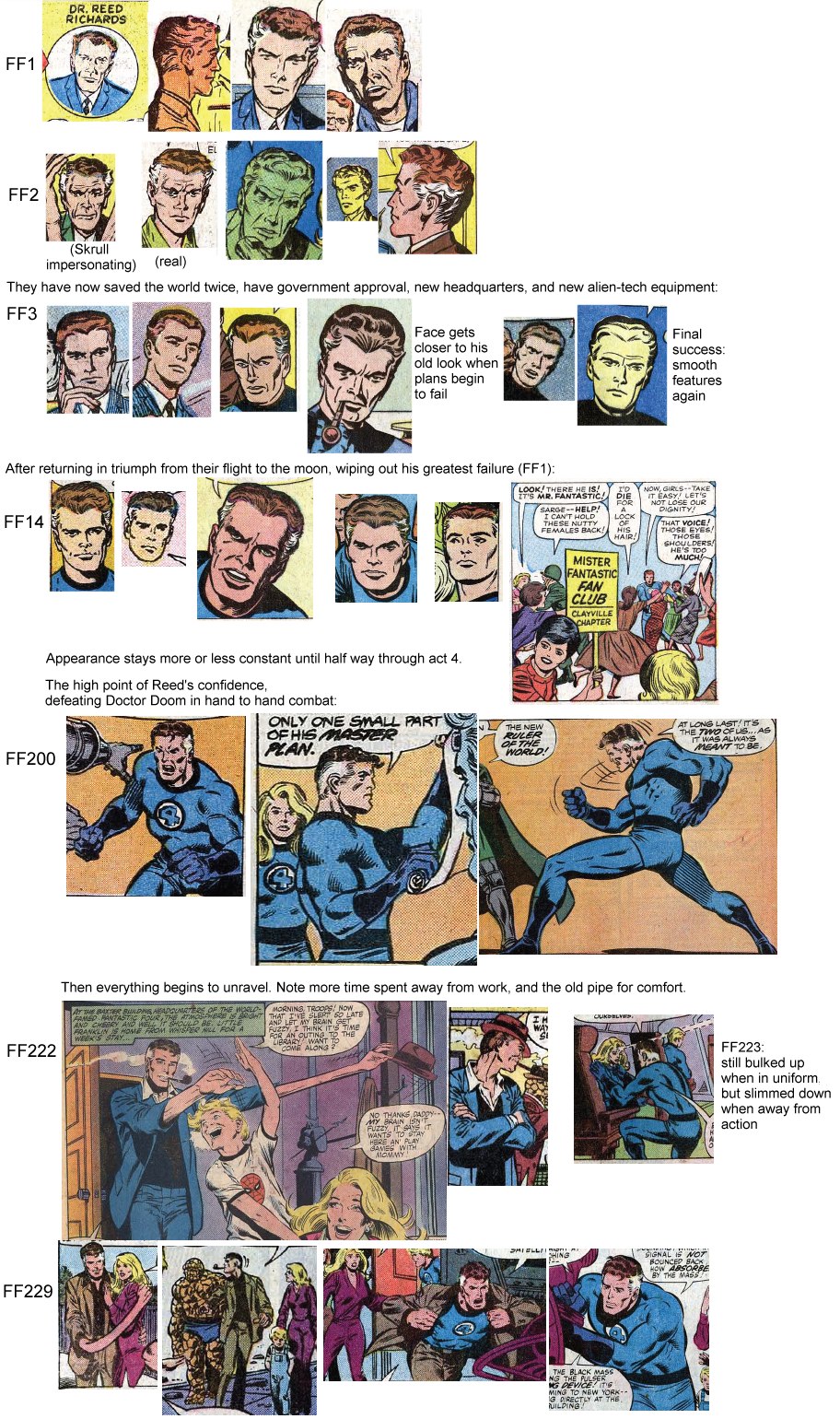
Finally, toward the end of Act 4, Reed's confidence has gone. He
still acts the hero, like nothing is wrong. but you can see the
struggles inside. It's all there in his face and body. His weakest
period is when he abandoned his child and apparently attempted suicide, taking
the team with him.

And finally, was Reed's intelligence increased by the cosmic rays? You decide. This is from FF 225.

'nuff said.


































































